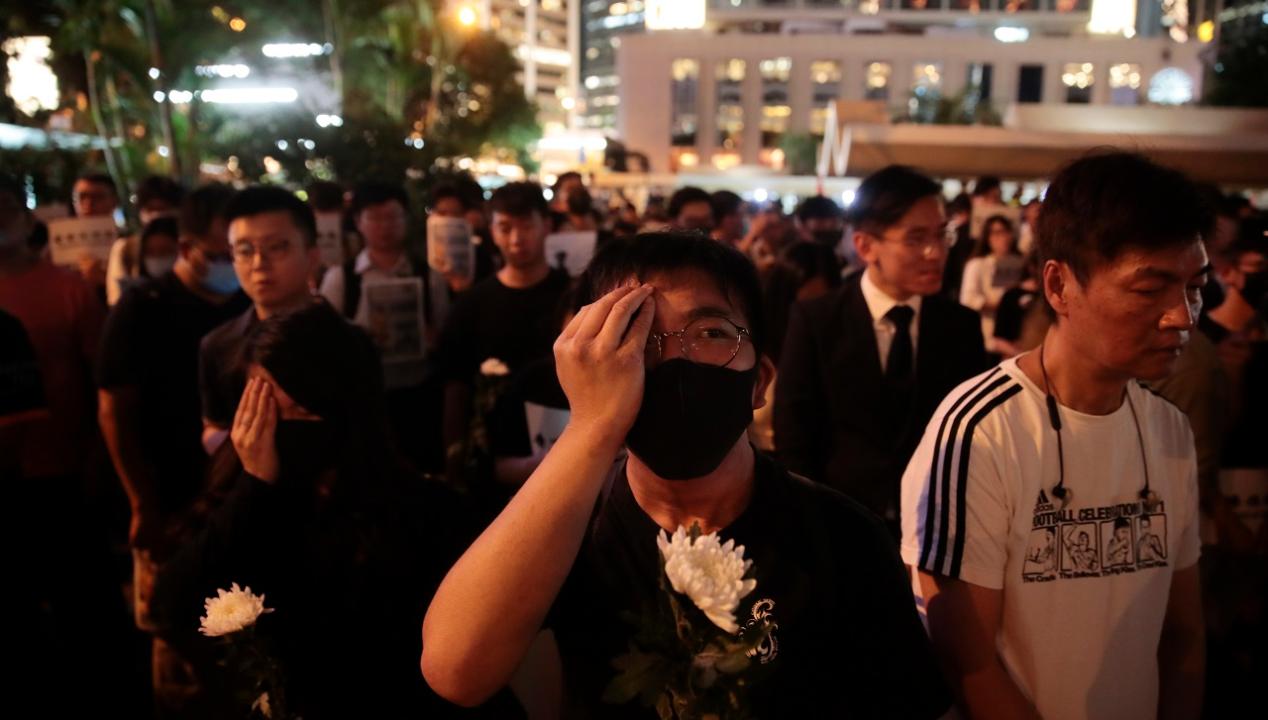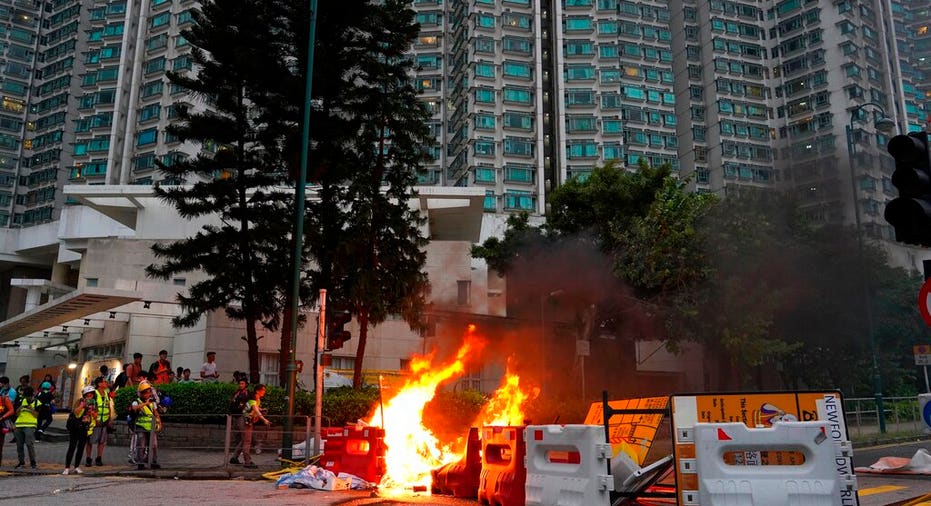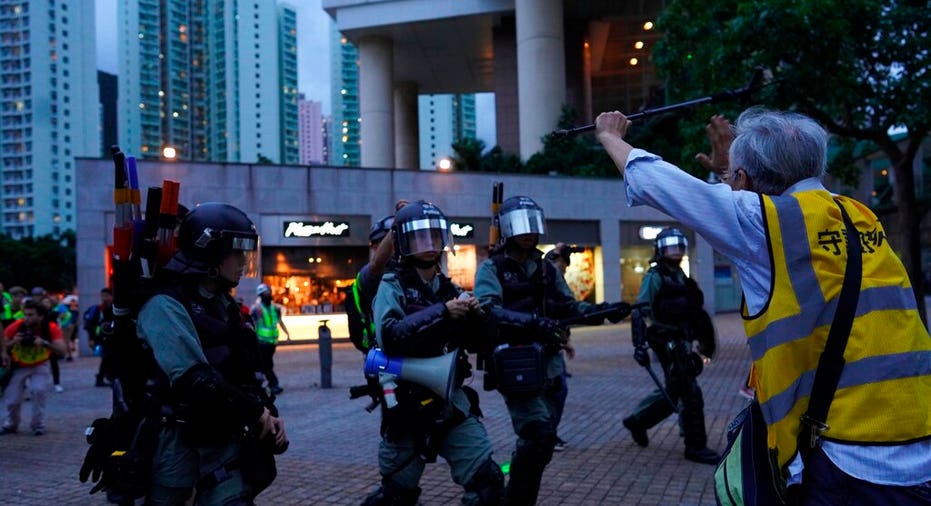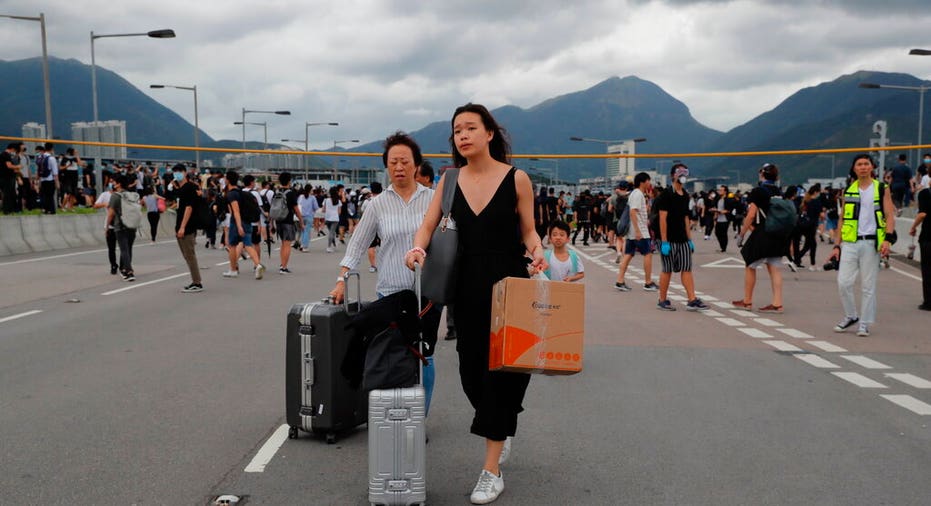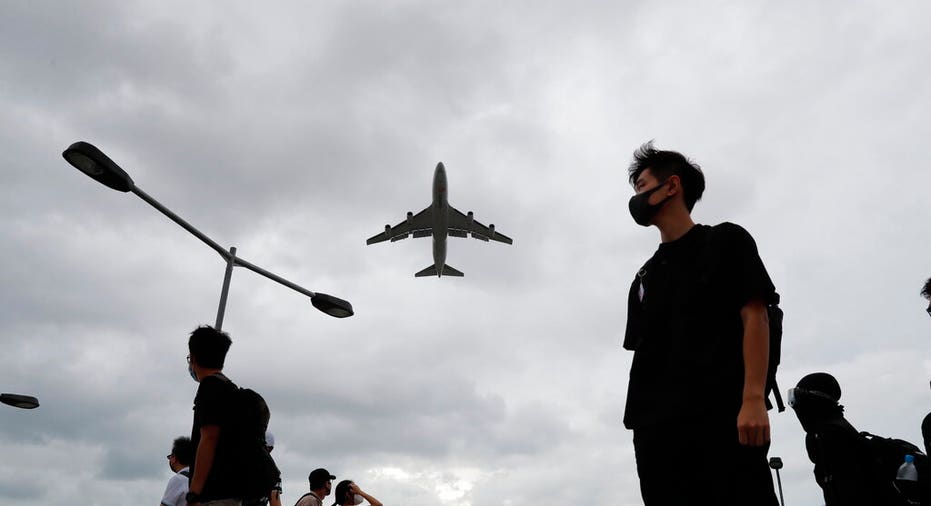Hong Kong airport service disrupted after violent protests suspend nearby trains, buses and roads
Service at the Hong Kong airport was disrupted on Sunday after violent anti-government protesters lit barricades on fire and blocked the roads, trains and buses leading to the airfield.
Protesters damaged a nearby train station and blocked buses, causing express trains and bus routes to the airport to be suspended amidst another violent night of conflicts with police.
The airport, which is located on the outlying island of Chek Lap Kok, is one of the busiest in Asia, with many passengers forced to walk to the airport with luggage in hand.
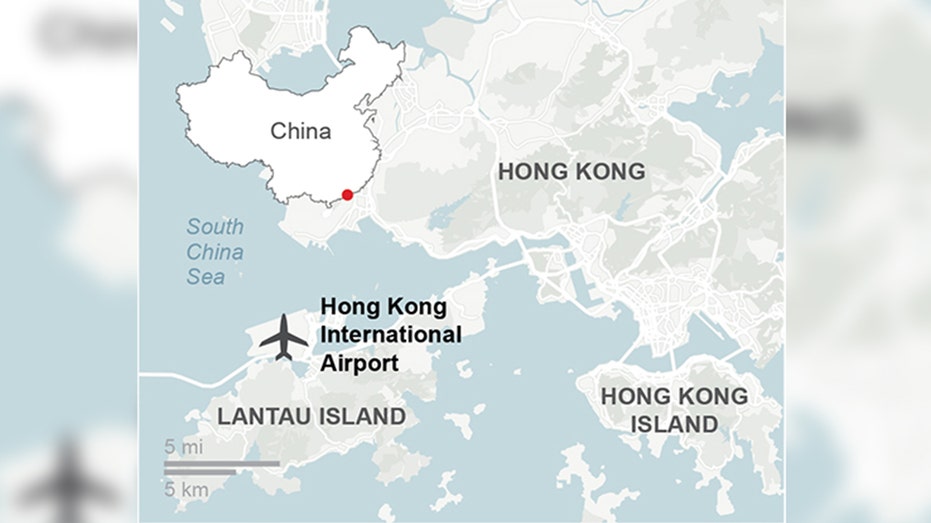
Protesters have advanced to Kowloon Peninsula per reports.
Such protests and clashes with police have persisted for last three months. What began as demonstrations following a proposed extradition law has since grown to include calls for a more democratic Hong Kong, as well as the resignation of Hong Kong Chief Executive Carrie Lam.
The former British colony was reintegrated into China back in 1997 in a deal between London and Beijing.
Police arrested 63 demonstrators at the Mong Kok, Yau Ma Tei and Prince Edward subway stations Saturday night, with the youngest offender being a 13-year-old alleged to be in possession of two gasoline bombs.
Similar gasoline bombs, as well as bricks and rocks, were thrown at police officers as well as onto the train tracks that lead to the city’s airport.
MTR Corp. announced it had suspended train service to the airport after several hundred protesters gathered there, where they smashed light fixtures and opened a fire hose valve causing water to pour out into the station.
Meanwhile, another group of demonstrators blocked buses as they arrived at the airport, with officers in riot gear eventually clearing them from the terminal.
Shortly thereafter, the protesters set up barricades on two streets that lead to the airport before lighting those barricades on fire.
Firemen try to douse fire after protesters set fire to barricades and vandalized signages at Tung Chung near airport in Hong Kong, Sunday, Sept.1, 2019. Train service to Hong Kong's airport was suspended Sunday as pro-democracy demonstrators gathered there, while protesters outside the British Consulate called on London to grant citizenship to people born in the former colony before its return to China. (AP Photo/Vincent Yu)
Sunday's travel disruptions was not the first time protesters have targeted the Hong Kong airport, with thousands of demonstrators storming and occupying it for days in mid-August.
The protests, which began in June, have come at an inopportune time for China, as the country looks to celebrate the Communist Party’s 70th anniversary of power on Oct. 1.
Under the 1997 deal between China and Britian, Hong Kong was supposed to have a "high degree of autonomy" after Britain gave the country of 7.4 million people back to mainland China.
However, that autonomy has not been honored, according to protesters. The proposed extradition bill at the center of the protests is a piece of legislation that would allow for criminal suspects in Hong Kong to be sent to the mainland, with it’s far more draconian Communist court system.
Later on Sunday, a separate group of about 200 protesters converged on the British Consulate in Hong Kong in an effort to pressure them to grant British citizenship to people born China before it took back the former colony.
Thus far, London has only offered "British National Overseas" passports to those born in Hong Kong prior to 1997, which can only be used for traveling in the United Kingdom and not permanent residency.




















